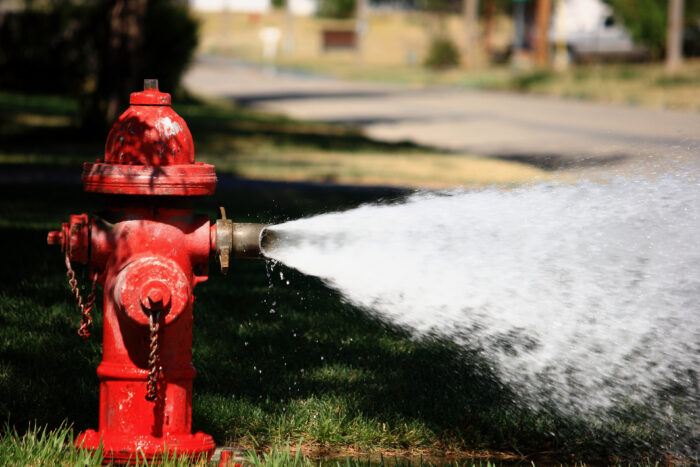Updated on Wednesday, March 20, 2024 at 5:15 p.m.
The Public Service Commission (PSC) launched a task force to address antiquated and defective fire hydrants — like the three fire hydrants that failed to deliver water while a West Side, Charleston house burned down.
The homeowner filed a lawsuit against water utility West Virginia American Water. The utility is arguing that it was not their responsibility to guarantee functioning fire hydrants.
A few months after the fire, the PSC launched an investigation into fire hydrants across the state. The investigation depended on utilities to report working fire hydrants. In October, Charlotte Lane, chair of the PSC, asked the West Virginia Legislature to grant the PSC regulatory power over the fire hydrants and asked for a fiscal note for testing.
What the commission got in the end was a bill creating a task force that brings stakeholders and experts to the table to make fire hydrants the responsibility of water utilities — officially.
“People hadn’t really focused on fire hydrants,” Lane said. “The incident on the West Side did bring it into focus and we determined that there was no clear cut law as to who was responsible.”
Lane said the task force will be made up of stakeholders like the West Virginia Rural Water Association, the Office of the Insurance Commissioner, county commissioners and fire chiefs.
The task force will meet and discuss adopting national standards for fire hydrants in the state, and review and process rules for managing fire hydrants. Lane said that for fire hydrants, age is just a number, and that “float” testing will determine if the hydrants are adequately functioning.
“I think the magic is that the fire hydrants pass the inspection and the flow testing, and then no matter how old they are, if the water pressure is there, then the fire hydrant should be okay,” Lane said.
Safer fire hydrants could translate into higher water costs for some utilities customers.
“Seems to me that anything dealing with infrastructure today is very expensive,” Lane said. “But that’s one of the facts of life that we need to keep up on.”
She said that if water utilities do not have fire hydrant management and care built into their rates, or if new regulations result in the utilities investing money into hydrants, then it’s possible that utilities will raise rates.
“If that happens, we will scrutinize their numbers. And we will rule on whether or not increases are necessary,” Lane said.
Gov. Jim Justice signed the legislation into law Wednesday.


























